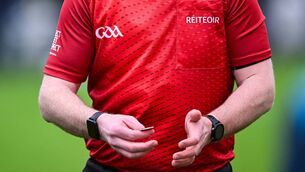The ultimate clubman answers his county’s call
IT’S BEEN a long road for Martin Bowen. The new Cork hurling selector was appointed following Erin’s Own win in the Cork Senior Hurling Championship, but his history with the Glounthaune parish side goes back a lot further than the glory days.
“The year before I took over as secretary (1977), we were beaten by Youghal’s second team in east Cork. That was our standard, that was our best team.”










